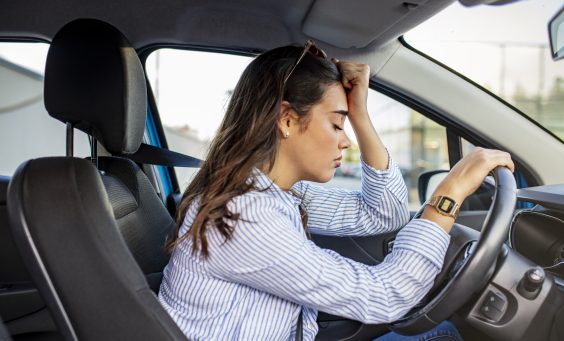Uncategorized | Boizelle Insurance Partnership - Page 13
What Happens If My Car Is Totaled?
f you ever get into a car accident, hopefully, the damages to your vehicle are not too severe. And, hopefully, no one suffers any injuries. If you are ever involved in an accident where your car suffers considerable damage, your insurance company may deem it what is called a total loss. This means that the cost to fully repair your car back to its original state before the accident would cost more than the car’s market value.
What does it mean when your car is deemed a “total loss”?
If your car is deemed a total loss, that means that it is not repairable or that the costs to repair it are more than what it is worth. There are a number of factors that go into considering whether or not a car is a “total loss”. If your car is older and has more miles on it, its market value will be less.
What type of insurance coverage covers a totaled car?
There are two types of insurance coverage that will pay out your car’s Actual Cash Value (ACV if it is totaled.
Comprehensive Coverage: This type of car insurance coverage covers damage or a total loss caused by something other than a collision with another vehicle i.e. fire, fallen trees, etc.
Collision Coverage: Covers damage or total loss caused by an accident with another vehicle.
What if you have a lien on your car?
If your car is totaled before you finish paying off the lien, the insurance company will pay the lien first and then send you what is left over (if there is anything). If you owe more for your vehicle than its actual cash value, it will be your responsibility to pay the difference unless you have gap insurance.
What should you do if you think your car has been totaled?
Once you file a claim, an insurance adjuster will assess the amount of damage or review your repair shop estimate. Once the market value of your car is determined, one of two things may happen. You will either be offered a payout to repair the car or be notified that your car is indeed a total loss. Once you accept that your car is a total loss, you must sign your vehicle over to the insurance company.
If you have any questions related to your insurance, please do not hesitate to call us at (301) 948-2010. We’re here for you!
Read moreWhy Did My Auto Insurance Premium Increase?
Inflation: The Consumer Price Index (CPI) rose more than 7% compared to 2020 – the largest increase in nearly 40 years. This means, on average, we are all spending 7% more on goods and services than we were a year ago.
Vehicle Parts: When it comes to the cost of parts for vehicles, those prices have increased by closer to 10%. (Historically, an increase of 2% to 3% from year to year is more typical)
Repair Costs: Recent supply chain issues such as the car chip shortage as well as labor market pressures have caused repair costs to increase significantly, by as much as 20% since 2020. Due to the limited supply of repair parts and a decrease in available workers, repairs to vehicles are taking longer to complete. As a result of this, customers are using rental cars for longer periods of time, thus increasing the cost of insurance claims.
Vehicle Prices: According to auto industry analysts, the cost of used vehicles climbed more than 27% in 2021 while new vehicles are costing 14% more than they did before 2021.
Driving again (and faster): What could be the reason for drivers driving faster? According to a national survey, 1 in 10 drivers admitted to driving at least 20 miles over the speed limit, sometimes even faster than that.
Accidents: As one could probably guess, driving your car at a higher rate of speed opens the door to a more severe collision. The National Highway Traffic Safety Administration has reported a 12% increase in deadly crashes, the largest such increase since reporting began in 1975.
How to Save Money on Your Auto Insurance
Ask us about pay plan discounts: You can save up to 7% on your auto insurance, depending on which plan you choose.
Get the ERIE Rate Lock feature: ERIE Rate Lock allows you to pay the same premium year after year, even if you file a claim. Your rates will only change if you add more remove a driver to your policy, or if you change addresses.
Consider increasing your deductible: Carrying a higher deductible will lower your auto insurance premium.
Take a look at your mileage: Are you working from home a lot more and driving less than before the COVID-19 pandemic? Based on your annual miles driven, you may be eligible for lower rates.
Bundle your coverage: If you have multiple policies with ERIE Insurance, you can earn a multi-policy discount when you combine your auto, home, or life insurance policies.
Read moreWhat is an “Act of God”?
“Act of God” is a common term in the insurance world. However, it may not be clear to you what it means. When you own a car, a business, or a home, it is natural for you to take certain steps to protect your assets. Understanding the term “Act of God” can help you better protect yourself with the proper insurance coverage.
What does “Act of God” mean?
An event that is considered unpreventable is considered to be an act of God.
What types of events qualify as an act of God?
Windstorms, lightning strikes, hail storms, wildfires, hurricanes, tornadoes, floods, and earthquakes. It is important to note that not all acts of God may be covered in a typical insurance policy. Call us to speak with one of our insurance professionals if you have questions about this.
Does auto insurance cover acts of God?
Your auto insurance policy will cover acts of God if you obtain what is known as comprehensive coverage. This coverage includes protection against natural disasters and other types of damage not caused by a collision. For instance, if your car is vandalized or an animal runs out in front of you, comprehensive coverage would help you cover the costs to repair your vehicle or cover you for a total loss.
What about home insurance?
A typical homeowners insurance policy usually covers some acts of God. Two exceptions to this are flooding and earthquakes. If you live in a flood zone area or one that is prone to earthquakes, you will want to obtain flood insurance for floods or a separate coverage for natural disasters.
Is an act of God the same thing as force majeure?
While these two terms are similar, force majeure is more commonly used in business and construction contracts. It refers to circumstances deemed unforeseeable that would prevent a contract from being fulfilled.
If you have any questions about acts of God, call us at (301) 948-2010. We will be happy to help you!
Read moreReasons Why Your Car Will Not Start
Imagine. You wake up in the morning on a beautiful, sunny, summer day. There isn’t a single cloud in the sky. You’ve woken up early enough to be able to enjoy your morning at a calm, relaxing pace. You walk downstairs to your kitchen, get yourself a hot cup of freshly brewed coffee, and you sit down at your kitchen table to enjoy your delicious breakfast. Everything is going great! You’ve got a crisp dress shirt on and freshly pressed dress pants. You’re feeling especially confident this morning because you’ve just sprayed yourself with your newly purchased cologne that you got over the weekend.
And then, you walk out to your car, turn the key in the ignition, and…it won’t start! Let’s take a look at how something so awful could happen to you.
Dead Car Battery: This is the most common reason for why a car will not start. A battery tester can help you determine whether or not your battery is weak. If you determine that you have a dead or weak battery, consider jump starting your car with jumper cables. After doing this, give your car some time to run, so that your alternator can recharge the battery.
Battery corrosion: Having clean battery posts is essential if you want your car to start and run properly. If you’re not sure how to clean battery, seek a professional’s guidance.
Bad starter motor: When you turn the key in the ignition, if you hear a single clicking sound, this could mean there’s a problem with the electrical connection. Starters typically need to be replaced between every 30,000 and 200,000 miles.
Clogged fuel filter: A fuel filter’s main purpose is to keep debris from getting into your car’s fuel system. When the filter is clogged, it’s possible that not enough fuel can reach your engine. A general rule of thumb is to replace your fuel filter every two years or every 30,000 miles (whichever comes first).
Failed fuel pump: A failed fuel pump needs to be fixed by a professional.
Bad timing belt: The purpose of a timing belt is to ensure the engine’s valves open and close at the proper interval so that the values and pistons never touch. A failed timing belt can be extremely dangerous because it can lead to a failed engine. Generally, timing belts need to be replaced every 60,000 miles or every 5 years, whichever comes first.
Bad ignition coil: The ignition coil transforms a battery’s voltage into an electric spark. A damaged ignition coil means there isn’t enough juice to do that. In order to test the strength of the current running through the coil, you’ll need a multimeter—a tool designed to measure electrical current, voltage, and resistance.
Always remember, if you encounter a problem with your car that you’re not confident or comfortable fixing yourself, it’s always best to hire a professional to do that job for you.
Read more



 There's no greater compliment we receive than when you refer your family members, friends, and neighbors. Because of your trust, our agency continues to grow as the DC area's preferred source for home, auto, business, and life insurance.
There's no greater compliment we receive than when you refer your family members, friends, and neighbors. Because of your trust, our agency continues to grow as the DC area's preferred source for home, auto, business, and life insurance.